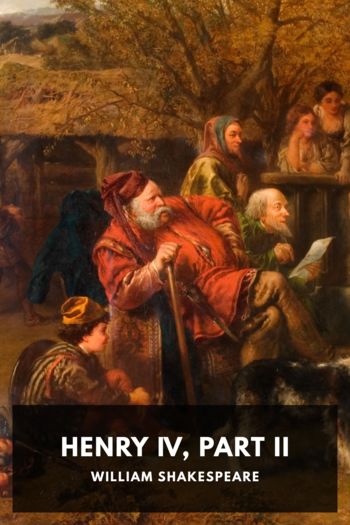Henry IV, Part II, William Shakespeare [love letters to the dead txt] 📗

- Author: William Shakespeare
Book online «Henry IV, Part II, William Shakespeare [love letters to the dead txt] 📗». Author William Shakespeare
York. The Archbishop’s palace.
Enter the Archbishop, the Lords Hastings, Mowbray, and Bardolph. ArchbishopThus have you heard our cause and known our means;
And, my most noble friends, I pray you all,
Speak plainly your opinions of our hopes:
And first, lord marshal, what say you to it?
I well allow the occasion of our arms;
But gladly would be better satisfied
How in our means we should advance ourselves
To look with forehead bold and big enough
Upon the power and puissance of the king.
Our present musters grow upon the file
To five and twenty thousand men of choice;
And our supplies live largely in the hope
Of great Northumberland, whose bosom burns
With an incensed fire of injuries.
The question then, Lord Hastings, standeth thus;
Whether our present five and twenty thousand
May hold up head without Northumberland?
Yea, marry, there’s the point:
But if without him we be thought too feeble,
My judgment is, we should not step too far
Till we had his assistance by the hand;
For in a theme so bloody-faced as this
Conjecture, expectation, and surmise
Of aids incertain should not be admitted.
’Tis very true, Lord Bardolph; for indeed
It was young Hotspur’s case at Shrewsbury.
It was, my lord; who lined himself with hope,
Eating the air on promise of supply,
Flattering himself in project of a power
Much smaller than the smallest of his thoughts:
And so, with great imagination
Proper to madmen, led his powers to death
And winking leap’d into destruction.
But, by your leave, it never yet did hurt
To lay down likelihoods and forms of hope.
Yes, if this present quality of war,
Indeed the instant action: a cause on foot
Lives so in hope as in an early spring
We see the appearing buds; which to prove fruit,
Hope gives not so much warrant as despair
That frosts will bite them. When we mean to build,
We first survey the plot, then draw the model;
And when we see the figure of the house,
Then must we rate the cost of the erection;
Which if we find outweighs ability,
What do we then but draw anew the model
In fewer offices, or at last desist
To build at all? Much more, in this great work,
Which is almost to pluck a kingdom down
And set another up, should we survey
The plot of situation and the model,
Consent upon a sure foundation,
Question surveyors, know our own estate,
How able such a work to undergo,
To weigh against his opposite; or else
We fortify in paper and in figures,
Using the names of men instead of men:
Like one that draws the model of a house
Beyond his power to build it; who, half through,
Gives o’er and leaves his part-created cost
A naked subject to the weeping clouds
And waste for churlish winter’s tyranny.
Grant that our hopes, yet likely of fair birth,
Should be still-born, and that we now possess’d
The utmost man of expectation,
I think we are a body strong enough,
Even as we are, to equal with the king.
To us no





Comments (0)